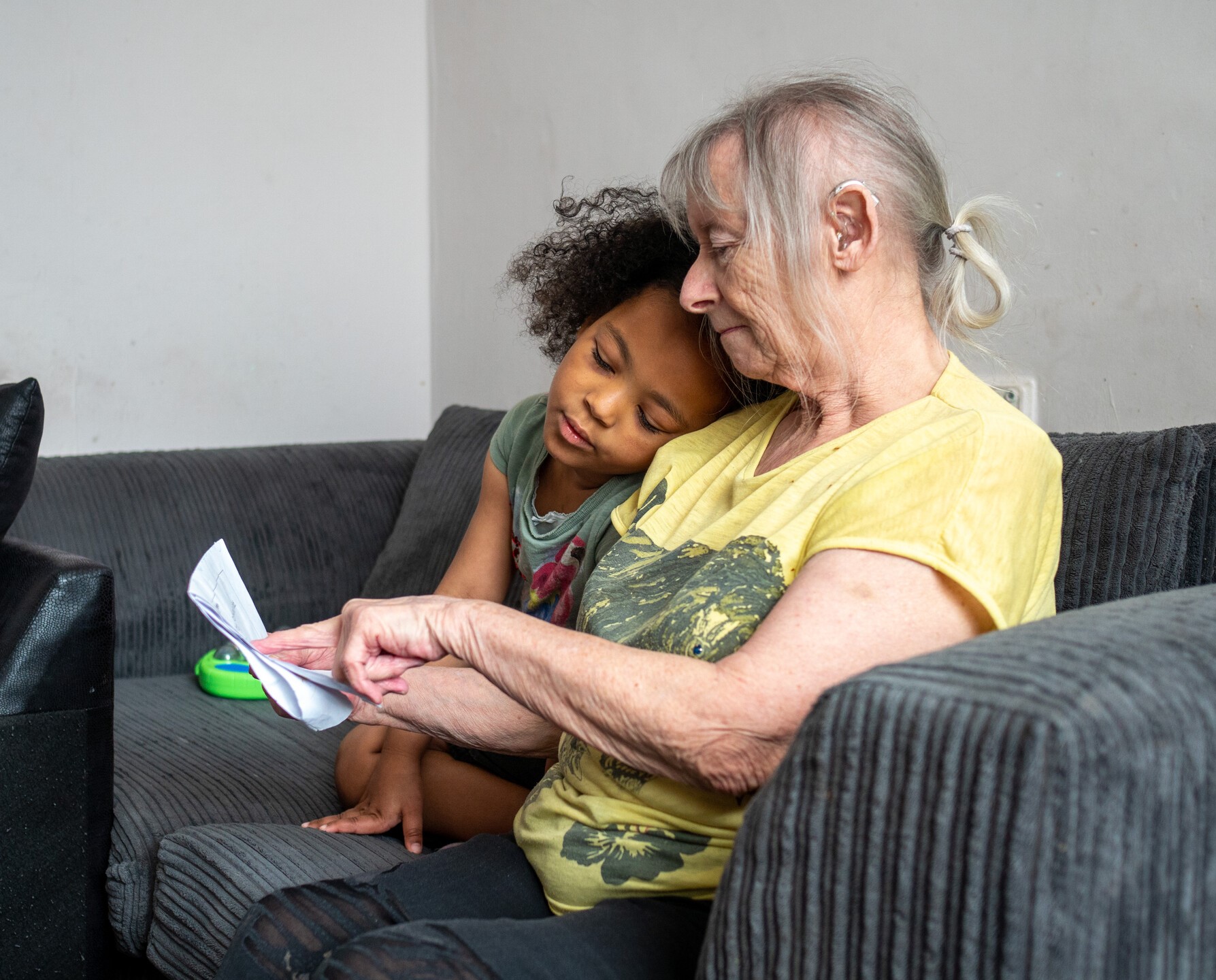
Kinship carers are family or friends who step up, often during an unexpected crisis, to care for a child when their parents aren’t able to.
For professionals:
As an education professional, you play an important role in the lives of children in kinship care. Did you know there are more than 141,000 children in kinship care in England and Wales? Find out how you can support children in kinship care in your school to thrive academically.
Please visit Support and advice for kinship carers

Click on the link below to take you to the section you'd like to read:
Kinship carers are family or friends who step up, often during an unexpected crisis, to care for a child when their parents aren’t able to.
Kinship carers are usually grandparents, aunts or uncles, brothers or sisters, a stepparent, stepbrother or stepsister, or someone who isn’t related but knows the child well.
Anyone can be a kinship carer, so it’s not always easy to tell.
Some kinship carers will have legal orders, such as a special guardianship order or child arrangements order. Or they might be a kinship foster carer. The kinship carer may let the school know, for example so that they’re able to apply for Pupil Premium Plus for the kinship child.
However, many kinship carers are informal kinship carers. This means they have no legal documentation to say that they are the main carer for the child. They themselves may not realise that they are a kinship carer.
These circumstances may suggest that a child is in kinship care:
Children in kinship care have experienced trauma in their life, which means they will have had difficult early life experiences. This could be that a parent has died, has gone to prison, is experiencing problems with drugs and alcohol, or have been neglectful or abusive. This will have created a period of instability and uncertainty in the child’s life.
Trauma can occur when we encounter something that is very stressful, frightening or distressing. Trauma can be the result of a single incident, such as a loved one dying suddenly, or from prolonged, repeated experiences over time, such as a parent who has a substance abuse issue.
Because everyone is unique, trauma affects people in different ways. Children, however, are particularly impacted by trauma because they are still developing their emotional and psychological resilience.
Some of the behaviours that children develop to cope with their experiences include:
47% of kinship children have a special educational need or disability
As an education professional, there are different ways that you can support kinship carers and their children.
In England, each local authority has a virtual school. It is not an actual school, but a service to promote the achievement of looked-after and previously looked-after children, as well as all children in kinship care. Every virtual school has a virtual school headteacher.
The role of the virtual school is to give information and advice to parents and schools about the needs and educational progress of children who have been in the care of children’s services or who have a legal order (such as a special guardianship order or child arrangements order).
You can find the contact details for your virtual school using our Kinship Compass, which provides information about local support services for kinship carers.
Children’s experiences need to be considered when teaching them and managing their behaviour. Speak to your school, local authority, Local Safeguarding Children Board or other specialist provider about what training might be appropriate.
You may also want to do some additional reading on the topic. The below books might be helpful:
You can also read our guide for kinship carers on how to support children and young people with trauma.
Pupil premium plus is special funding for schools. It is currently around £2500 per pupil year. It is paid to schools to promote the education of pupils who have been in the care of children’s services.
The kinship carer will need to provide proof of their child’s status so that the school can apply for the funding. Evidence can include a photocopy of a child arrangements order, special guardianship order or a letter from the local authority or social worker. There are set times to apply each year, so make sure the kinship carer is aware of any deadlines for getting evidence to you.
Your school should seek the opinion of kinship carers on how the money could be best used to support their child in school.
Kinship carers should be kept up to date with the progress of their child.
A kinship carer may ask for a single point of contact, discuss within your school who is most suited to this role. You can also help by providing kinship carers with the details for key people in your school, this could include the designated teacher, virtual school headteacher, appropriate school governor and SENCo.
Kinship carers may not be familiar with the education system, because they may have experienced it a long time ago or never have had experience of it. Providing information and support about what to expect could be helpful too.
Kinship carers may have lots of questions about the school, education system and support you can provide for children in kinship care.
Take a look at our checklist for schools which kinship carers can access through our website and the Kinship Care Guide for England. It was created using insights from other kinship carers. There are questions on a range of topics, from financial support to SEND provision. You may find it helpful to take a look, so you know the answers.
There may be several children in kinship care within your school. With appropriate permission, you could put kinship carers in touch with each other. Many kinship carers tell us that it can be a lonely and overwhelming experience, creating a peer support community can help them understand there are other kinship carers in their local community.
Let kinship carers know about any financial support they might be able to access through school. This could include free school meals, uniform grants or support for school trips.
Kinship care is complex. You can help by understanding more about kinship care and sharing information with other education professionals in your school. There is lots of information on our website, you may find the below a good place to start:
Many kinship carers do not know they’re a kinship carer. You can let them know about the support and advice that Kinship can provide them. Including support through our advice line, our online information guides, peer support groups and free training and events.